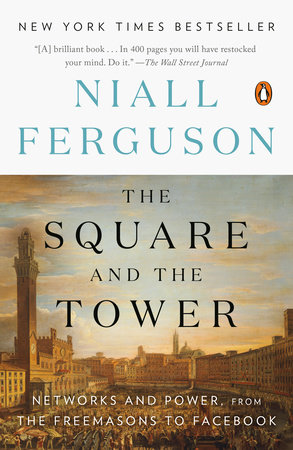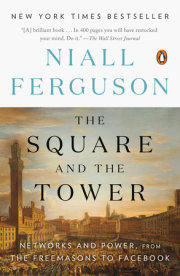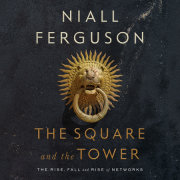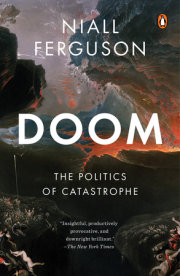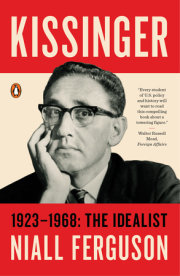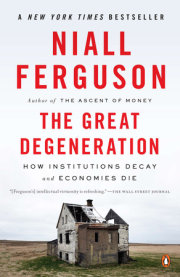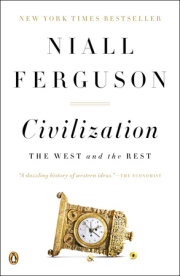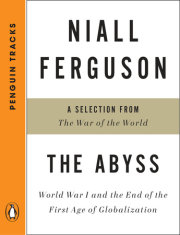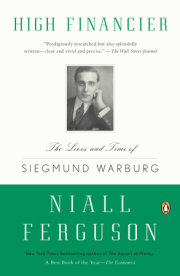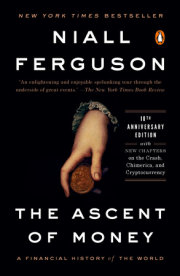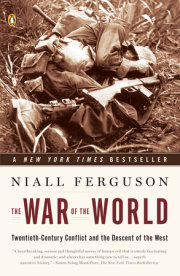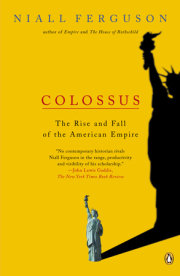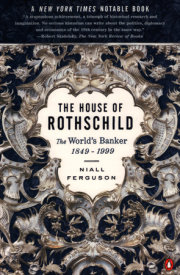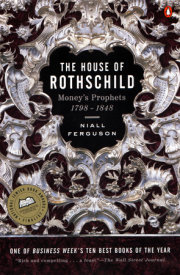“Captivating and compelling. Whether describing the surprisingly ineffective 18th century network of the mysterious Illuminati that continue to be the subject of crank conspiracy theorists or the shockingly effective 20th century network of Cambridge University spies working for the Soviets, Ferguson manages both to tell a good story and provide important insight into the specific qualities that power successful networks.” —The New York Times
“Remarkably interesting . . . always surprising and always thought-provoking in the places and entities it chooses to pause and examine, everything from the Mafia to the Soviet Union of Stalin. . . . The Square and the Tower in addition to being provocative history, may prove to be a bellwether work of the Internet Age.” —Christian Science Monitor
"Niall Ferguson has again written a brilliant book. . . . His short chapters are lucid snapshots of a world history of Towers and Squares, filled with gracefully deployed learning. . . . THE SQUARE AND THE TOWER is always readable, intelligent, original. You can swallow a chapter a night before sleep and your dreams will overflow with scenes of Stendhal’s The Red and the Black, Napoleon, Kissinger. In 400 pages you will have restocked your mind. Do it." —The Wall Street Journal
“Ferguson reminds us the social network didn’t spring fully formed from the mind of Mark Zuckerberg; rather, it’s a persistent force in human affairs offering a novel lens on past and perplexing present.”—San Francisco Chronicle
"A wide-ranging and provocative tour through the history of human connectivity, pre- and post-high tech. Ferguson also ladles out illuminating doses of networking theory and analysis of the threat that growing political and economic complexity poses to established hierarchies and institutions." —Inc.com
“An engaging, provocative history of networks (and their relationships to hierarchies) from ancient times to the invention of the printing press to the pervasiveness of the personal computer. Breathtaking in its scale and scope, The Square and the Tower applies insights of network theory to (among other subjects) Portugal’s foothold in Macau, the “conquest” of the Incas, the Reformation, the Enlightenment, the American Revolution, the Industrial Revolution, World War I, Stalin’s Terror, World War II, the fall of the Soviet Union, the founding of the European Union and the Great Recession of 2008-09.”—Pittsburgh Post-Gazette
“An enthralling ‘reboot’ of history from a novel perspective, spanning antiquity to the present day. . . . Like the best historians, [Ferguson] always pauses to learn from the past and anticipate the future. If only for this reason, [THE SQUARE AND THE TOWER] is well worth a read.”—Science
“[Ferguson’s] typically bold rethinking of historical currents, painted on the broadest canvas, offers many stimulating insights on the tense interplay between order, oppression, freedom, and anarchy.” —Publishers Weekly, starred review
“Ferguson has written a provocative and intellectually challenging work that should promote consideration and debate among academics and laypersons.” —Booklist
“Renowned economic historian Ferguson draws on insights from network theory to examine disruptions across time. . . . Refreshingly evenhanded. . . . Ferguson offers a novel way of examining data . . . highly intriguing.” —Kirkus
“In his sweeping, stimulating and enlightening The Square and the Tower, noted historian Niall Ferguson draws from a wide range of sources to trace the crucial role that different kinds of human networks have played throughout history… Ferguson’s superb, thought-provoking book brings these events vividly to life and will help readers view history from a unique perspective.” —BookPage
"Niall Ferguson's The Square and the Tower brilliantly illuminates the great power struggle between networks and hierarchies that is raging around the world today. As a software engineer steeped in the theory and practice of networks, I was deeply impressed by this book's insights. Silicon Valley needed a history lesson and Ferguson has provided it." —Eric Schmidt, Executive Chairman of Alphabet, the parent company of Google

